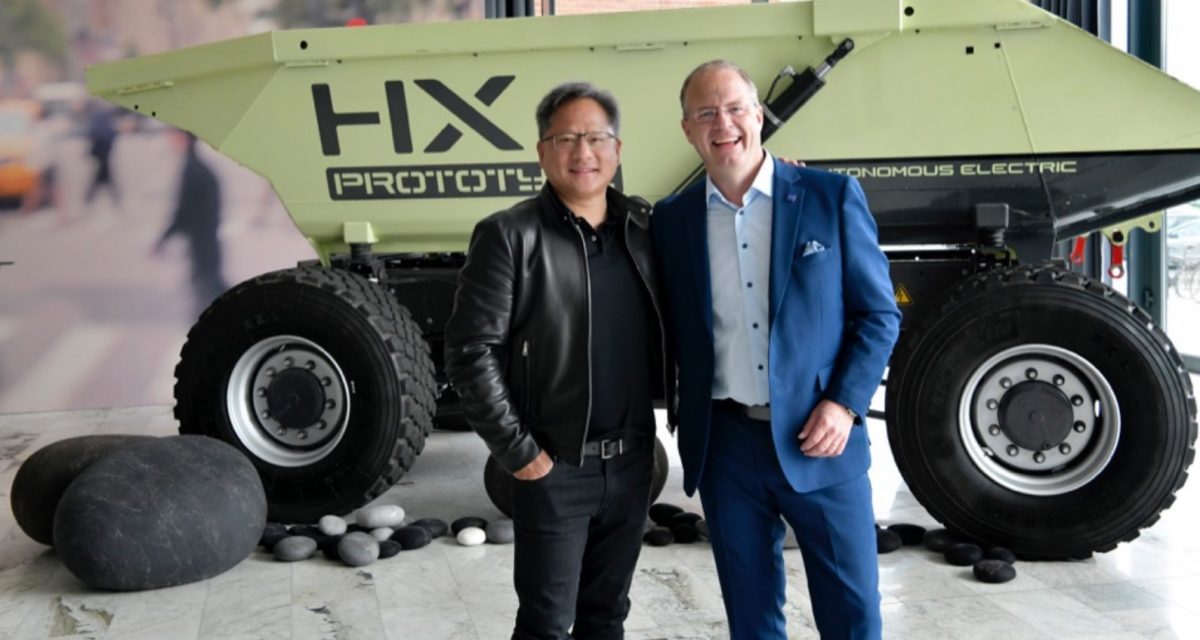
Volvo and Nvidia have formed a partnership that will see the pair collaborate on AI technology for self-driving vehicles.
Speaking to investors and media at Volvo’s annual event for the capital-markets community, Volvo Group CEO Martin Lundstedt said:
“Partnership is the new leadership. If we are to succeed in the future with speed, quality, and safety – and to gain benefits of autonomous driving – we need to partner up with the best guys. In this world of unknowns, you need a partnership built on trust.”
Volvo is the world’s second-largest truckmaker after Daimler. The carmaker demonstrated its first cabin-less autonomous truck called Vera last year.
By applying AI to trucks, Volvo hopes to disrupt industries from public and freight transport, to forestry and construction.
Jensen Huang, NVIDIA founder and CEO, commented:
“Trucking is the world’s largest network – a network that through online shopping puts practically anything, anywhere in the world, quickly within our reach.
The latest breakthroughs in AI and robotics bring a new level of intelligence and automation to address the transportation challenges we face. We are thrilled to partner with Volvo Group to reinvent the future of trucking.”
The deal with Volvo is a particular boost for Nvidia and its AI technology for self-driving cars after Tesla ditched the firm last year. Tesla CEO Elon Musk said the company would focus on creating its own chips.
Nvidia debuted its ‘Xavier’ processors for the company’s DRIVE autonomous car platform last year. Xavier was in development for over four years, represents the work of over 2,000 engineers, features more than nine billion transistors, and Nvidia claims it’s the most complex system-on-a-chip (SoC) ever created
During a conference call in August last year, Huang said: “It’s super hard to build Xavier and all the software stack on top of it. If it doesn’t turn out for whatever reason for them [Tesla] you can give me a call and I’d be more than happy to help.”
Nvidia has made a name for itself as the maker of powerful GPUs, traditionally for gaming purposes. The company has been increasingly shifting gears into other computation-heavy areas like AI and machine learning.
Automotive chips accounted for $641 million of Nvidia’s $11.7 billion in revenue in its most recent fiscal year.






